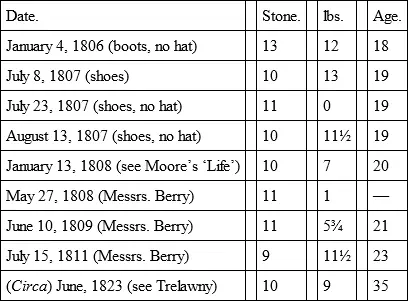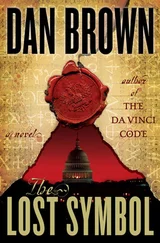Richard Edgcumbe - Byron - The Last Phase
Здесь есть возможность читать онлайн «Richard Edgcumbe - Byron - The Last Phase» — ознакомительный отрывок электронной книги совершенно бесплатно, а после прочтения отрывка купить полную версию. В некоторых случаях можно слушать аудио, скачать через торрент в формате fb2 и присутствует краткое содержание. Жанр: literature_19, Поэзия, foreign_antique, foreign_prose, foreign_poetry, Биографии и Мемуары, на английском языке. Описание произведения, (предисловие) а так же отзывы посетителей доступны на портале библиотеки ЛибКат.
- Название:Byron: The Last Phase
- Автор:
- Жанр:
- Год:неизвестен
- ISBN:нет данных
- Рейтинг книги:3 / 5. Голосов: 1
-
Избранное:Добавить в избранное
- Отзывы:
-
Ваша оценка:
- 60
- 1
- 2
- 3
- 4
- 5
Byron: The Last Phase: краткое содержание, описание и аннотация
Предлагаем к чтению аннотацию, описание, краткое содержание или предисловие (зависит от того, что написал сам автор книги «Byron: The Last Phase»). Если вы не нашли необходимую информацию о книге — напишите в комментариях, мы постараемся отыскать её.
Byron: The Last Phase — читать онлайн ознакомительный отрывок
Ниже представлен текст книги, разбитый по страницам. Система сохранения места последней прочитанной страницы, позволяет с удобством читать онлайн бесплатно книгу «Byron: The Last Phase», без необходимости каждый раз заново искать на чём Вы остановились. Поставьте закладку, и сможете в любой момент перейти на страницу, на которой закончили чтение.
Интервал:
Закладка:
We have quoted only a portion of Pietro Gamba’s letter, but sufficient to show that Byron has been, like his friend Shelley, ‘brutally misunderstood.’ There was no one better qualified than Count Gamba to express an opinion on the subject, for he was in the closest intimacy with Byron up to the time of the latter’s death. There was no attempt on Byron’s part to mystify his young friend, who had no epistolary intercourse with those credulous people in England whom Byron so loved to ‘gull.’ The desire to blacken his own character was reserved for those occasions when, as he well knew, there would be most publicity. Trelawny says:
‘Byron’s intimates smiled at his vaunting of his vices, but comparative strangers stared, and noted his sayings to retail to their friends, and that is the way many scandals got abroad.’
According to the same authority, George IV. made the sport known as ‘equivocation’ the fashion; the men about town were ashamed of being thought virtuous, and bragged of their profligacy. ‘In company,’ says Trelawny, ‘Byron talked in Don Juan’s vein; with a companion with whom he was familiar, he thought aloud.’
Among the accusations made against Byron by those who knew him least was that of intemperance – intemperance not in meat and drink only, but in everything. It must be admitted that Byron was to blame for this; he vaunted his propensity for the bottle, and even attributed his poetic inspirations to its aid. Trelawny, who had observed him closely, says:
‘Of all his vauntings, it was, luckily for him, the emptiest. From all that I heard or witnessed of his habits abroad, he was and had been exceedingly abstemious in eating and drinking. When alone, he drank a glass or two of small claret or hock, and when utterly exhausted at night, a single glass of grog; which, when I mixed it for him, I lowered to what sailors call “water bewitched,” and he never made any remark. I once, to try him, omitted the alcohol; he then said, “Tre, have you not forgotten the creature comfort?” I then put in two spoonfuls, and he was satisfied. This does not look like an habitual toper. Byron had not damaged his body by strong drinks, but his terror of getting fat was so great that he reduced his diet to the point of absolute starvation. He was the only human being I ever met with who had sufficient self-restraint and resolution to resist this proneness to fatten. He did so; and at Genoa, where he was last weighed, he was ten stone and nine pounds, and looked much less. This was not from vanity of his personal appearance, but from a better motive, and, as he was always hungry, his merit was the greater. Whenever he relaxed his vigilance he swelled apace. He would exist on biscuits and soda-water for days together; then, to allay the eternal hunger gnawing at his vitals, he would make up a horrid mess of cold potatoes, rice, fish, or greens, deluged in vinegar, and swallow it like a famished dog. Either of these unsavoury dishes, with a biscuit and a glass or two of Rhine wine, he cared not how sour, he called feasting sumptuously. Byron was of that soft, lymphatic temperament which it is almost impossible to keep within a moderate compass, particularly as in his case his lameness prevented his taking exercise. When he added to his weight, even standing was painful, so he resolved to keep down to eleven stone.’
While on this subject, it is not uninteresting to contrast the effects of Byron’s regimen of abstinence by the light of a record kept by the celebrated wine-merchants, Messrs. Berry, of St. James’s Street. This register of weights has been kept on their premises for the convenience of their customers since 1765, and contains over twenty thousand names. The following extract was made by the present writer on November 2, 1897: 3 3 ‘Lord Byron.’

It will be seen at a glance that between the ages of eighteen and thirty-five Byron had reduced his weight by three stone and three pounds. The fluctuations between the ages of nineteen and thirty-five are not remarkable. This record marks the consistency of a heroic self-denial under what must often have been a strong temptation to appease the pangs of hunger.
CHAPTER II
Byron’s life at Pisa, as afterwards at Genoa, was what most people would call a humdrum, dull existence. He rose late.
‘Billiards, conversation, or reading, filled up the intervals,’ says Medwin, ‘till it was time to take our evening drive, ride, and pistol-practice. On our return, which was always in the same direction, we frequently met the Countess Guiccioli, with whom he stopped to converse a few minutes. He dined at half an hour after sunset, then drove to Count Gamba’s, the Countess Guiccioli’s father, passed several hours in their society, returned to his palace, and either read or wrote till two or three in the morning; occasionally drinking spirits diluted with water as a medicine, from a dread of a nephritic complaint, to which he was, or fancied himself, subject.’
On Sunday, March 24, 1822, while Byron, Shelley, Trelawny, Captain Hay, Count Pietro Gamba, and an Irish gentleman named Taaffe, were returning from their evening ride, and had nearly reached the Porta alle Piagge at the eastern end of the Lung’ Arno, Sergeant-Major Masi, belonging to a dragoon regiment, being apparently in a great hurry to get back to barracks, pushed his way unceremoniously through the group of riders in front of him, and somewhat severely jostled Mr. Taaffe. This gentleman appealed to Byron, and the latter demanded an apology from the sergeant, whom he at first mistook for an officer. The sergeant lost his temper, and called out the guard at the gateway. Byron and Gamba dashed through, however, and before the others could follow there was some ‘dom’d cutting and slashing’; Shelley was knocked off his horse, and Captain Hay received a wound in his face. Masi in alarm fled, and on the Lung’ Arno met Byron returning to the scene of the fray: an altercation took place, and one of Byron’s servants, who thought that Masi had wounded his master, struck at him with a pitchfork, and tumbled the poor fellow off his horse. There was a tremendous hubbub about this, and the legal proceedings which followed occupied two months, with much bluster, false swearing, and injustice, as a natural consequence. The court eventually came to the conclusion that there was no evidence for criminal proceedings against any of Byron’s domestics, but, in consideration of Giovanni Battista Falcieri – one of Byron’s servants – having a black beard, he was condemned to be escorted by the police to the frontier and banished from the grand-duchy of Tuscany.
At the same time the Gambas (who had nothing whatever to do with the affair) were told that their presence at Pisa was disagreeable to the Government. In consequence of the hint, Byron and the Gambas hired the Villa Dupuy, at Montenero, near Leghorn. Here, on June 28, 1822, a scuffle took place in the gardens of the villa between the servants of Count Gamba and of Byron, in which Byron’s coachman and his cook took part. Knives were drawn as usual. Byron appeared on the balcony with his pistols, and threatened to shoot the whole party if they did not drop their knives, and the police had to be called in to quell the disturbance. The Government, who were anxious to be rid of Byron, took advantage of this riot at the Villa Dupuy. Byron’s courier and Gamba’s valet were sent over the frontier of the grand-duchy under police escort, and the Gambas were warned that, unless they left the country within three days, formal sentence of banishment would be passed upon them. As soon as Byron heard the news, he wrote a letter to the Governor of Leghorn, and asked for a respite for his friends. A few days grace were granted to the Gambas, and on July 8 they took passports for Genoa, intending to go first to the Baths of Lucca, where they hoped to obtain permission to return to Pisa. While negotiations were proceeding Byron returned to the Palazzo Lanfranchi. 4 4 ‘Letters and Journals of Lord Byron,’ edited by Rowland Prothero, vol. vi., appendix iii.
Интервал:
Закладка:
Похожие книги на «Byron: The Last Phase»
Представляем Вашему вниманию похожие книги на «Byron: The Last Phase» списком для выбора. Мы отобрали схожую по названию и смыслу литературу в надежде предоставить читателям больше вариантов отыскать новые, интересные, ещё непрочитанные произведения.
Обсуждение, отзывы о книге «Byron: The Last Phase» и просто собственные мнения читателей. Оставьте ваши комментарии, напишите, что Вы думаете о произведении, его смысле или главных героях. Укажите что конкретно понравилось, а что нет, и почему Вы так считаете.












